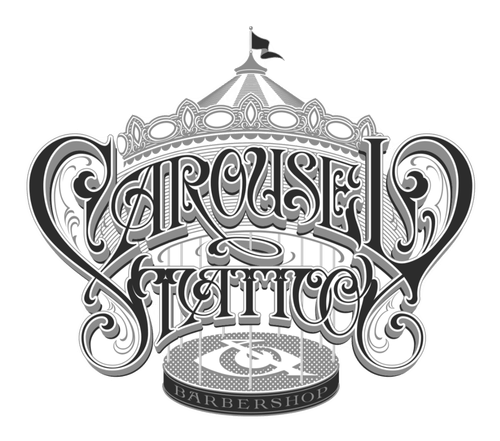Admissions at Twelve Mile
At Twelve Mile Recovery has programs available for anyone battling substance use disorder with a desire to be free from addiction. It is important to ensure that our program is the right fit for you or your loved one. Our admissions process is designed to evaluate individual needs and circumstances, ensuring that we can offer the most effective care possible. We encourage you to review our admissions criteria closely and reach out with any questions or concerns.
ARE YOU LOOKING FOR A UNIQUE AND PERSONALIZED APPROACH?
We integrate trauma informed martial arts, physical fitness, yoga and meditation, addiction therapy and peer support into our program. We are not cookie cutter. We are as unique as you are.
ARE YOU STRUGGLING WITH Substance use or addiction?
We welcome clients with substance use disorder and co-occurring mental health challenges, providing focused, personalized care to help clients build a strong foundation for recovery.
ARE YOU OVER 18 YEARS OLD?
We treat individuals of all genders, who are over 18. Our main goal is to provide a supportive environment for all those who are struggling with addiction.
ARE YOU motivated, COMMITED, AND READY?
When individuals come to us ready to embark on their path to recovery, we look for an essential readiness to change and a solid commitment to pursue sobriety no matter the challenges ahead.

Assessment
Prior to admission, a confidential assessment call takes place. This call aims to evaluate the addiction situation, physical and emotional health, and readiness to commit to treatment for you or your loved one.

Preparation
At Twelve Mile Recovery, we recognize the importance of this preparation, which is why we work closely with each individual to decide on the best possible plan for their unique situation.
what to bring & what not to bring to treatment
Preparing for rehab can often feel like stepping into the unknown, especially when it comes to packing. The question of what to bring (and what to leave behind) can add an unnecessary layer of stress during an already challenging time. To ease this burden, we’ve compiled a thoughtful list to help guide you through the process.
What to Bring
Be sure to bring seven days worth of comfortable, weather-appropriate clothing, including:
- Shoes – Running shoes, slippers, sandals, and comfortable shoes for everyday wear.
- Tops – Dress for the weather, bring options!
- Pants & Shorts
- Socks & Undergarments
- A bathing suit
- Pajamas
- A coat/jacket
- A bath robe
- Athletic attire – Stretchy or loose clothing that you are comfortable moving, and sweating in
Your insurance cards and a form of identification (driver’s license, passport, etc.).
Most rehabs require all toiletries and beauty products to be completely alcohol-free. Others will allow you to bring products that do not have alcohol listed in the first three ingredients. Do not bring aerosols.
Bring 6 weeks worth of toiletries and beauty products, including:
- Deodorant
- Toothbrush and toothpaste
- Shampoo and conditioner
- Hair styling products (pump hair spray only)
- Comb/brush
- Feminine hygiene products
- Shaving cream
- Lotion
- Sunscreen
Bring 4-6 weeks worth of all prescribed medication to be provided to staff for safe storage and dispersal. If you need to get a refill while in treatment, we can facilitate a refill through our local pharmacy partner.
Bringing family photos and letters to rehab can serve as a powerful reminder of the love and support waiting on the outside, offering a tangible sense of hope during the recovery journey. These personal items carry with them memories of happier times, milestones achieved, and the familiar faces of loved ones rooting for one’s success. They act as motivational anchors, reinforcing the reasons why embarking on this path to sobriety is not just necessary but worthwhile.
What Not to Bring
When embarking on the journey to recovery, it’s crucial to understand that bringing drugs, alcohol, narcotics, or prohibited prescriptions into a rehabilitation facility not only undermines the very essence of the healing process but also poses significant risks to both the individual and others in the program. Rehab centers are designed to be safe havens that promote health, healing, and hope; introducing substances that fuel addiction contravenes these goals and can severely hinder progress.
Twelve Mile Recovery designed to be a safe and supportive space for everyone involved. This means that bringing any form of weapon into rehab is strictly prohibited. The reason behind this rule is not only legal but deeply rooted in the philosophy of healing and recovery. Weapons, by their very nature, symbolize aggression and conflict—two elements that rehabilitation centers strive to eliminate from the lives of those seeking to overcome addiction.
Creating a secure environment allows individuals to focus entirely on their recovery without fear or distractions. It fosters a sense of community and trust among residents and staff, which is crucial for effective therapy and personal growth. The absence of weapons ensures that all interactions within the facility remain peaceful and constructive, enabling individuals to explore their thoughts and emotions openly, without apprehension.
Rehab centers often have specific guidelines about clothing to ensure that all patients feel comfortable and safe during their recovery journey. Inappropriate clothing, which may include items that are overly revealing, display offensive logos or messages, or could trigger other patients, are generally not allowed.
When entering a rehabilitation facility, one of the rules that might come as a surprise to many is the prohibition against bringing outside food and drink. This policy is not designed to limit enjoyment or restrict personal freedom but rather serves several important purposes in the recovery process.
Firstly, the regulation ensures that all dietary needs are met with balanced, nutritious meals prepared by professionals. Nutrition plays a critical role in recovery, helping to repair physical damage caused by substance abuse and strengthen the body for the journey ahead. By controlling the food and drink intake of residents, rehab centers can provide tailored nutritional support that aligns with each individual’s recovery plan.
Additionally, this rule helps maintain a safe and controlled environment for everyone. It prevents the introduction of potential allergens or foods that could interfere with someone’s treatment plan. More importantly, it eliminates the risk of substances being smuggled into the facility through food or drink items, safeguarding all residents’ progress towards sobriety.
Understanding and respecting these boundaries can significantly contribute to one’s healing process, reinforcing discipline and mindfulness about personal health and well-being. While it may seem like a minor aspect of rehab life, adhering to such guidelines is part of embracing a lifestyle change that supports lasting recovery.
Medicard by ifinance
Now offering instant and easy monthly payments that you can afford
Our Virtual Treatment Program
Providing professional support from the convenience of your own home
learn more











